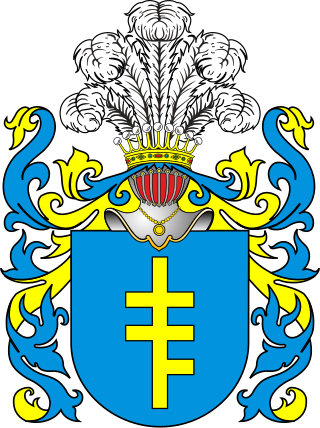Top Qs
Timeline
Chat
Perspective
Paweł Potocki
Polish nobleman From Wikipedia, the free encyclopedia
Remove ads
Paweł Potocki (d. 1675) was a Polish nobleman and writer. He was born into the prominent Potocki family through his father, Stefan Potocki.[1] From 1638 to 1642, he studied at the Kraków Academy and the University of Padua. By 1643, he was a royal court secretary.[2] In the mid-1650s, Paweł was captured by Russian troops and held captive in Russia for more than a decade. During his captivity, he allegedly swore allegiance to the tsar, married a Russian noblewoman, and learned material for his later work on Russian society.[3] Stefan, Paweł's father, had previously also spent some years in foreign captivity at the prison in Istanbul.
Paweł wrote several works during his lifetime. His style heavily relied on allusion,[3] with the posthumously edited version of Moschovia opening with phrases such as "aurum abire in ferrum, sanguine pluere caelum".[4] Like his father, Paweł supported the Dominican Order, and this devotion was evident in the sacral nature of Sanctitas.[2] Paweł's son was archbishop Teodor Potocki.[1]
Historian Mirosław Nagielski authored Paweł Potocki's biography for the Polish Biographical Dictionary.[3]
Remove ads
Works
- Moschovia sive brevis narratio de moribus magnae Russorum monarchiae, 1670.
- Saeculum bellatorum et togatorum seu centuria elogiorum clarissimorum virorum Polonorum et Lithuanorum, 1702.
- Sanctitas peregrina sive oratio in laudem divi Hyacinthi Regni Poloniae patroni, Rome, 1643.
See also
References
Wikiwand - on
Seamless Wikipedia browsing. On steroids.
Remove ads

